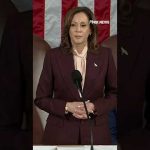Justin Trudeau has officially announced his intention to resign as party leader and Prime Minister of Canada, a decision he made after facing increasing pressure from within his own Liberal Party. This announcement marks a significant shift in Canadian politics, especially considering Trudeau had held a leadership position for an impressive 11 years, being elected three times during that span. His decision to step down comes just as polls indicate the Conservative Party has surged to a 20-point lead over the Liberals, painting a stark picture of the changing political landscape in Canada.
It’s no secret that Trudeau’s tenure has not been free of controversy. Many Canadians remember the tumultuous times under his leadership, particularly during the infamous trucker protests against vaccine mandates. These protests, which captured international attention, showcased a growing discontent among citizens who felt that their Prime Minister was disconnected from the real issues that plagued everyday life. As inflation skyrocketed and housing crises gripped the nation, Canadians voiced their frustrations that Trudeau seemed more focused on climate change commitments than on the economy and basic living conditions. It turns out that the political writing was on the wall, and Trudeau is now facing the consequences of what many are calling a failure to connect with the electorate.
This shift in the political arena is not isolated to Canada. Recent trends all over the globe indicate a rightward movement in politics, with a notable shift to conservative leadership across numerous countries in the EU and even the U.S. This growing conservative wave seems to be a rejection of liberal policies that have not resonated well with voters. The phrase “out of touch” keeps coming up, particularly when discussing Trudeau’s leadership style, which some critics compare to that of other liberal politicians who have also struggled to understand the needs of their constituents.
The irony here is that Trudeau, who once prided himself on being a champion of progressive causes, may soon find himself sidelined from the very debates he sought to lead. Observers point out that while his aspirations to support women’s rights and tackle climate issues were commendable, they pale in comparison to the pressing concerns of ordinary Canadians struggling to make ends meet. The essence of good leadership is the ability to resonate with the challenges faced by the people, and Trudeau’s government will need to grapple with its legacy of disconnect as it prepares for new leadership.
What lies ahead for the Liberal Party is uncertain. Trudeau has urged the party to conduct a “robust nationwide competitive process” to find his successor, but questions linger about whether the party can truly reconnect with the electorate that feels ignored. The general sentiment among many conservatives seems to be one of expectation—there are rising hopes for a leadership that prioritizes economic stability and listens more closely to the voices of the people. As Trudeau prepares to step aside, the political landscape in Canada could very well be on the verge of a significant transformation, one that might see a new era of conservative solutions that promise to take Canada in a different direction. Only time will tell how the political tides will shift on both sides of the border.




